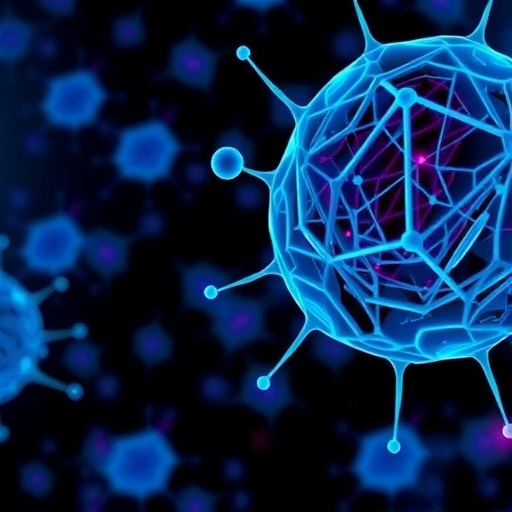In recent years, artificial intelligence (AI) has revolutionized numerous fields, including healthcare and scientific research. However, as the capabilities of AI systems continue to expand, so too do the potential risks associated with their misuse. A striking concern in the field of biomedical research, and particularly in stem cell research, is the reliance on retracted literature, which poses serious ethical and methodological dilemmas. A groundbreaking study conducted by Yao, Gu, and Li in 2025 sheds light on this critical issue, comparing the performance and ethical considerations of three leading AI systems—ChatGPT4o, deepseek, and grok 3—in the context of stem cell research and reliance on flawed literature.
The study reveals alarming statistics about the extent to which AI tools inadvertently or intentionally utilize retracted publications in their analyses and outputs. Retractions are an integral part of the academic process, serving as a form of self-correction that underscores the integrity of scientific inquiry; however, when AI systems draw upon such literature, the implications can be far-reaching and detrimental. The researchers sought to determine the frequency and contexts in which these AI models engage with retracted works, with a specific focus on their impacts on the field of stem cell research.
Particularly concerning is the finding that all three AI systems evaluated—ChatGPT4o, deepseek, and grok 3—demonstrated a worrying propensity to reference and utilize retracted articles. This tendency highlights a broader issue in the academic community: the need to ensure that AI tools are not only capable of sifting through data but also discerning the quality and validity of the information they process. The failure to achieve this discernment can lead to the perpetuation of misinformation, rendering AI outputs unreliable and potentially harmful.
In addition to assessing the prevalence of retracted literature in AI outputs, the study critically examined the varying methodologies and capabilities of the three AI systems. ChatGPT4o, known for its conversational capabilities, is particularly adept at synthesizing information but lacks robust mechanisms for validating the credibility of the sources it accesses. This raises significant ethical questions about the role of AI in disseminating knowledge, particularly in sensitive areas like stem cell research where the stakes are extraordinarily high.
Deepseek, on the other hand, is designed specifically for scholarly literature searches and analysis, but the study found that it also fell short in its ability to filter out retracted articles effectively. Despite its academic focus, the reliance on machine learning algorithms can lead to systemic biases and the unintentional inclusion of flawed studies. This finding suggests that even specialized tools are not immune to the pitfalls of misusing retracted literature, thereby necessitating further scrutiny and improvements.
Grok 3 represents a more recent entry into the landscape of AI-assisted research tools. Designed with advanced algorithms that claim to enhance accuracy and reliability, Grok 3 revealed a mixed performance. While it exhibited improved filtering capabilities compared to its predecessors, it still referenced retracted literature at concerning rates. The research underscores the critical need for ongoing development and refinement of AI tools in scientific applications, with a focus on establishing rigorous protocols for evaluating source credibility.
The implications of these findings are significant for both researchers and institutions engaged in stem cell research and beyond. As AI becomes increasingly integrated into the research process, there must be an awareness and understanding of its limitations and the potential consequences of relying on flawed data. The responsibility lies not only with developers of AI models but also with researchers who must maintain ethical standards and ensure the integrity of their work by critically appraising the outputs of such systems.
Furthermore, the study raises questions about the future direction of policy and regulation regarding AI in research. As more institutions adopt AI technologies, there is a pressing need for guidelines that dictate the ethical use of AI, including how to address the issue of retracted literature. This multifaceted challenge necessitates collaboration among AI developers, researchers, ethicists, and policymakers to create frameworks that prioritize research integrity and public safety.
Education and training play crucial roles in this evolving landscape. Researchers must be equipped with the skills to critically assess AI outputs, discerning valid information from potentially harmful misinformation generated by machines. As part of this educational endeavor, institutions should implement training programs that emphasize the importance of data integrity and the ethical considerations of using AI tools in research.
Ultimately, the study by Yao and colleagues serves as a clarion call for the scientific community. The misuse of retracted literature by AI systems poses a profound risk to the credibility of scientific research, particularly in fields as impactful as stem cell research. Moving forward, stakeholders must engage in ongoing dialogue to address the ethical complexities posed by AI, ensuring that these powerful tools enhance research rather than undermine it.
In conclusion, while the benefits of AI in scientific research are undeniable, the findings of this study highlight critical vulnerabilities that must be addressed. By fostering accountability, transparency, and rigorous validation processes, the research community can harness the power of AI while safeguarding the integrity of scientific inquiry. The challenges outlined demand a concerted effort to bridge the gap between technological advancement and ethical responsibility, ultimately paving the way for a brighter future in research.
Subject of Research: The misuse of retracted literature in AI applications within stem cell research.
Article Title: AI misuse of retracted literature: A comparative study of ChatGPT4o, deepseek, and grok 3 in stem cell research.
Article References:
Yao, L., Gu, T., Li, X. et al. AI misuse of retracted literature: A comparative study of ChatGPT4o, deepseek, and grok 3 in stem cell research.
Sci Nat 112, 85 (2025). https://doi.org/10.1007/s00114-025-02036-5
Image Credits: AI Generated
DOI: 10.1007/s00114-025-02036-5
Keywords: AI, stem cell research, retracted literature, ethical implications, misinformation, ChatGPT4o, deepseek, grok 3.




